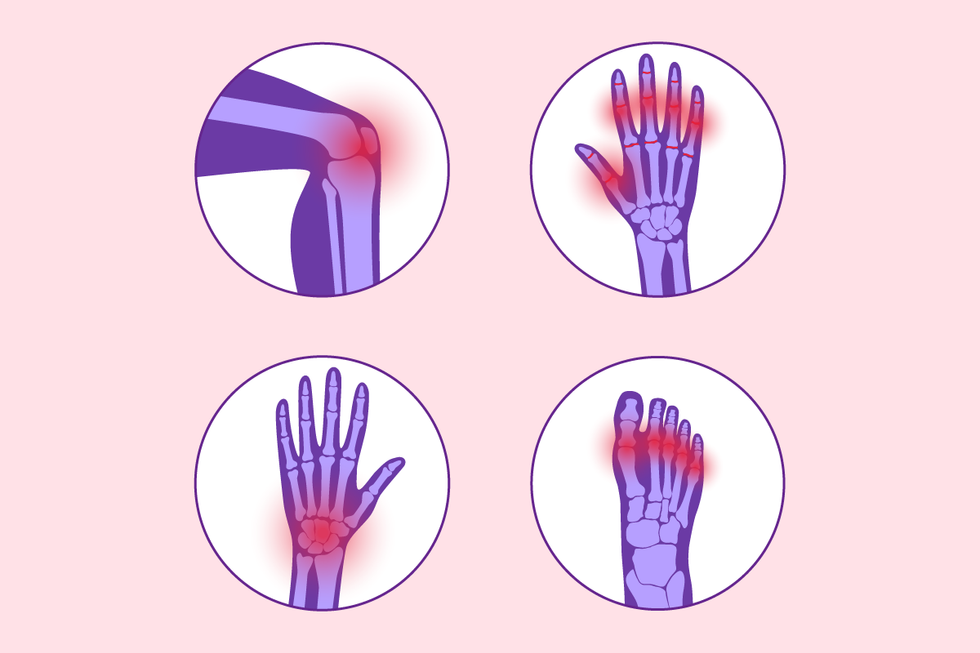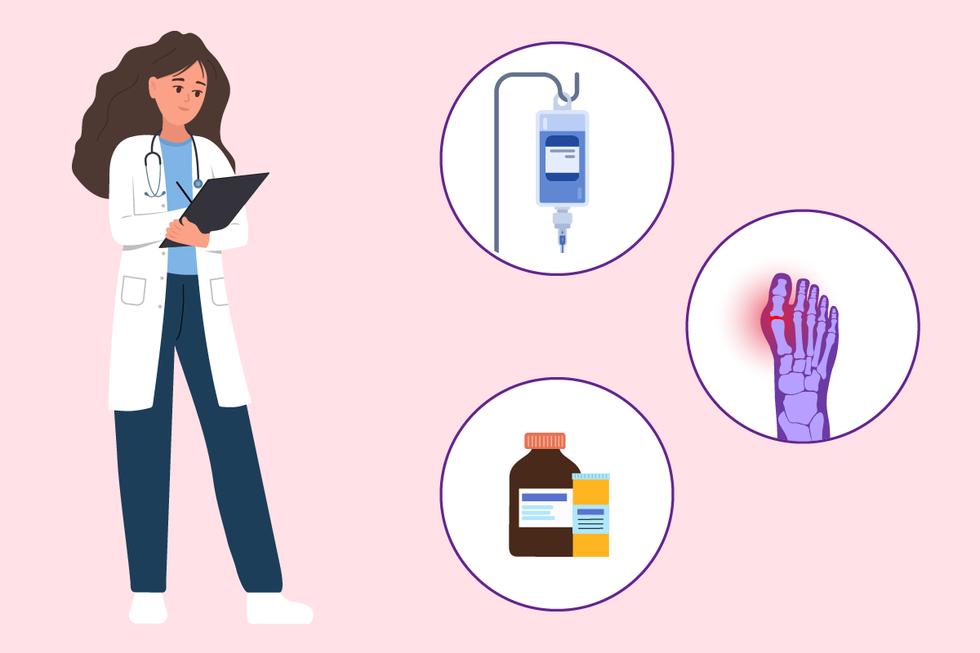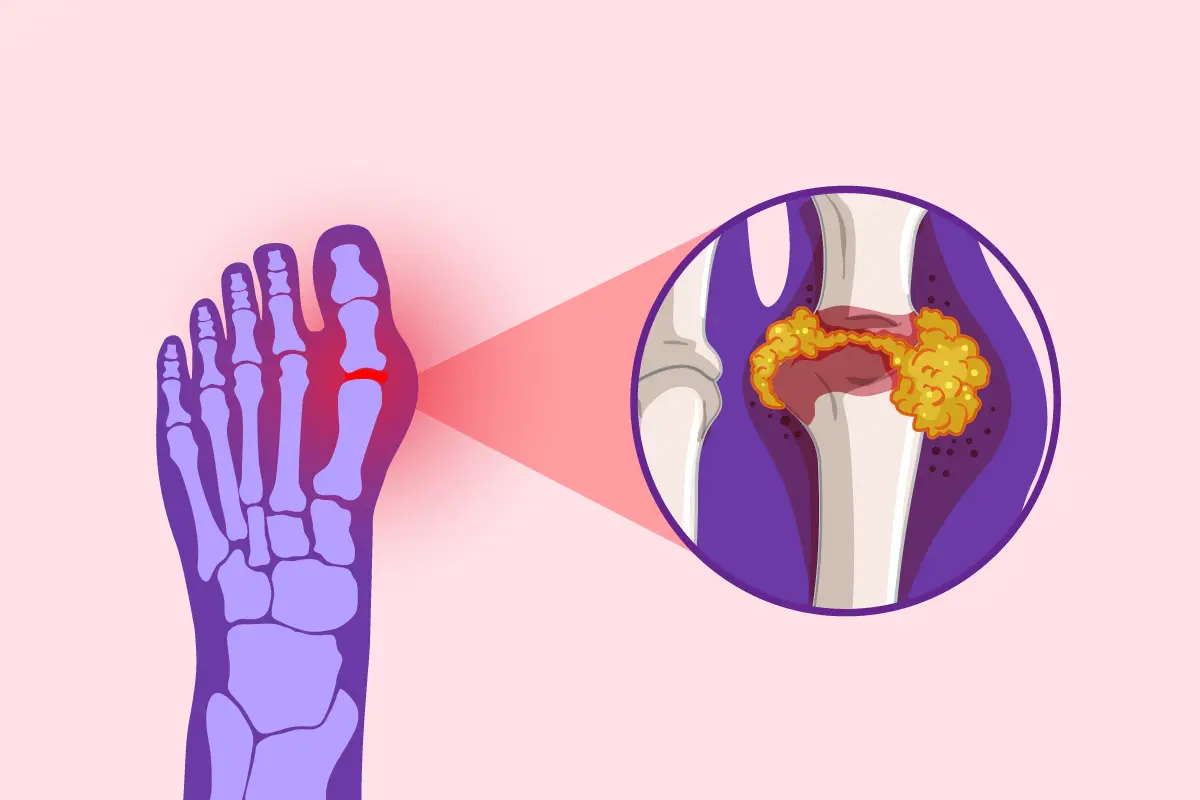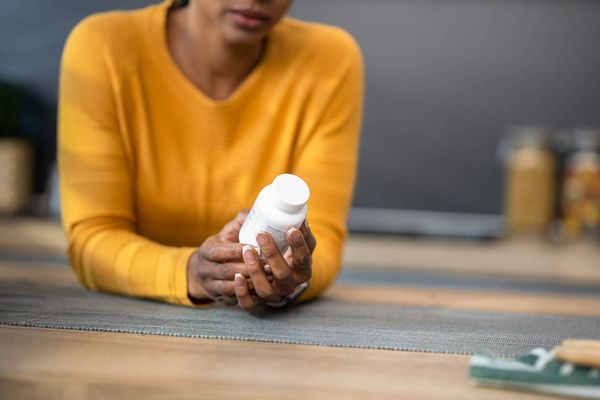What is gout?
Gout is a type of inflammatory arthritis that occurs when uric acid builds up in your blood and forms tiny, needle-shaped crystals that can deposit almost anywhere in the body, including in the joints, bones, heart, spine, kidney and eyes. These deposits can form visible lumps in the joints, which are known as tophi.
Can women get gout?
You may wonder, can women get gout? The answer is simple: Yes.
Gout is almost twice as common in men than in women — 5.2% of men and 2.7% of women report having gout — but women can still get it.
Estrogen helps flush uric acid out of the body. So, women tend to get gout after they've gone through menopause, which causes them to lose estrogen. Women who haven’t gone through menopause can still get gout, but it’s less common. Those living with chronic kidney disease are also at a higher risk.
Why you should pay attention to your risk for gout

Gout may signal other health risks, especially for women.
In fact, one study showed that women with gout were 39% more likely to have a heart attack than women without gout. Another study found that women with gout were more likely than men with gout to have high blood pressure, diabetes, kidney disease and obesity.
Gout is on the rise in women
In the last 20 years, cases of gout have more than doubled among women.
Today, 2 million women in the U.S. have this inflammatory form of arthritis.
It’s not entirely clear why gout rates are increasing, but the aging population and rising obesity may be factors.
Gout symptoms in women

Typical symptoms of gout are gout flares, which can cause severe pain, swelling, redness and soreness in the joints. This includes the hallmark sign: pain in your big toe. Gout symptoms in women can be different than the typical symptoms, though. While gout often comes on suddenly and intensely, women are more likely than men to have joint pain that starts more slowly and affects several joints at a time. These joints include the knees, toes, wrists and fingers.
Though a classic sign of gout is acute pain in the big toe, women often get pain in their hands instead. As a result, healthcare providers can sometimes mistake gout for inflammatory osteoarthritis, which causes swelling and pain in the fingers.
Women are often dismissed or ignored by healthcare providers overall. This can come into play in a condition like gout, which is often misdiagnosed, especially in women who don’t always have the telltale symptoms. So, it’s important to advocate for yourself if you suspect you have gout. One way to do that is to ask for a blood test to measure your uric acid levels. If your level is above 6 mg/dl and you’re experiencing flares, you may have gout.
Gout diagnosis and treatments

For most people, gout flares can be managed with anti-inflammatory medicines like colchicine or steroids, or with oral medications that reduce uric acid, the root cause of the disease. If you have gout that persists after taking oral medications, talk to your healthcare provider about your options.
This resource was created with support from Horizon Therapeutics.







